The HCMC Fire Department plans to inspect the compliance of fire safety regulations across the city, especially at all city-based multistory buildings, Major General Tran Trieu Duong, director of the department told SGGP.
The inspections are part of the National Week on Fire and Explosion Control and Prevention (March 14-21) to protect lives and property.
So far this year, there have been 36 fires in the city, killing two and injuring one and causing total damages of VND40 billion (US$2.1 million), Duong said.
Citing the nine fatalities at two recent fires in Hanoi and southern Binh Duong Province, he said fire safety regulations at multistory buildings needed to be tightened.
The March 10 fire in the 18-story JSC 34 apartment block in Hanoi, that killed a woman and son, might have been caused by tenants throwing inflammable objects into the garbage chutes.
He pointed out that the building was not fitted with an automatic fire-sprinkler system.
If everybody in the building had complied with fire regulations the tragedy would not have happened, he said.
He called on all management boards of apartment buildings and residents to be more aware of fire safety.
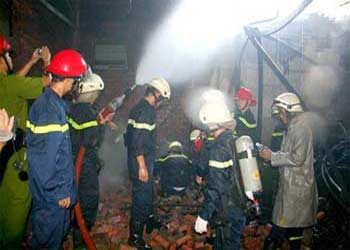
“Investors of apartment block projects must abide by regulations on fire safety to protect the lives and assets of people.
“The doors of garbage collecting systems must be closed after use to keep inflammable objects in the garbage from catching fire and also prevent smoke leaking out in case of a fire.
“The regulations are compulsory for all multistory buildings but a number of irresponsible investors have failed to comply,” he said.
All high-rises must be equipped with fire extinguishing systems, including portable extinguishers. They must have safe emergency exits, air ventilation, and fire alarm systems, he said.
Under current regulations, heads of all agencies, businesses, and organizations must check the fire fighting equipment in their offices. For buildings that are vulnerable to fire, checks must be made every month, he said.
“However, many have failed to comply with that regulation. Such irresponsibility could lead to tragedy,” he warned, citing the VND10 billion damage bill from the fire at Scancia Pacific Co. in the Tan Tao Industrial Park in Binh Tan District, which was caused by repeated disregard for fire regulations.
“A number of districts have heeded fire safety rules, the agency said. “They regularly inspect and punish violations, and raise public awareness.”
He said, however, that a number of apartment-block management boards would only reluctantly improve their anti-fire systems when pressured by local fire agencies.
Under current regulations, the fire police have the right to do four inspections per year with three days notice, he said.
Duong said the three days notice gave building managers time to put everything in order before inspectors came, and then after the inspection they would neglect fire safety standards again.
During the Week, the department would review fire extinguishing plans for all buildings vulnerable to fire, especially high-rises.
It would do fire safety inspections at industrial parks, export processing zones, trade centers, dance halls and bars; and require trade centers, companies, markets, and households to sign commitments on compliance with fire safety regulations. Any violations would be strictly punished, the department said.
Fire drills would also be practiced, it said.
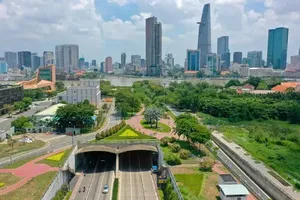

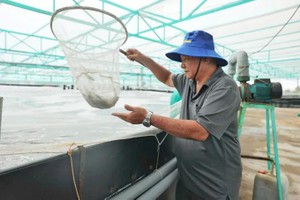
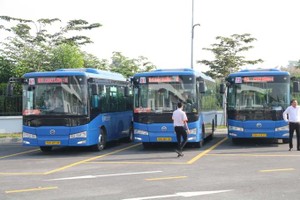



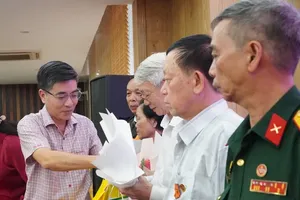










)





